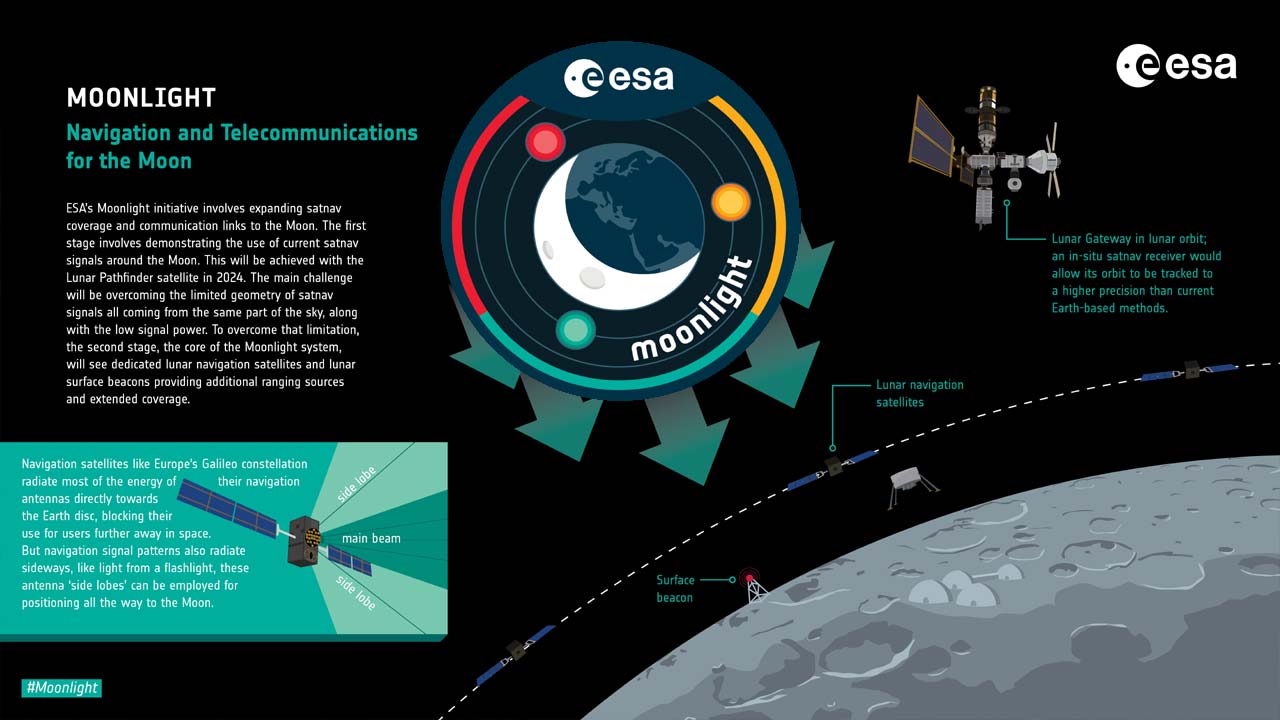
The European Space Agency (ESA) has launched the Moonlight Programme, Europe's first dedicated satellite constellation for telecommunications and navigation services on the Moon. This program, developed in collaboration with an industry consortium led by Telespazio and supported by the UK and Italian Space Agencies, aims to facilitate high-speed, low-latency communication and autonomous landing and surface mobility between Earth and the Moon. It will be vital for the return and sustained presence of humanity on the Moon, reducing costs and increasing efficiency for lunar missions.
With over 400 lunar missions planned by space agencies and private companies in the next two decades, Moonlight plays a crucial role in sustainable lunar exploration and the potential development of a lunar economy. The system will include five lunar satellites, forming a communication and navigation network covering up to 400,000 km between Earth and the Moon. The Moonlight satellites will focus on the lunar south pole, a promising location for future operations due to its solar energy potential and water resources.
The program will begin with the Lunar Pathfinder in 2026, with full Moonlight operations expected by 2030. The initiative aligns with LunaNet standards and will conduct the first-ever lunar navigation interoperability tests in 2029. Moonlight will also contribute to the broader understanding of planetary environments.





















